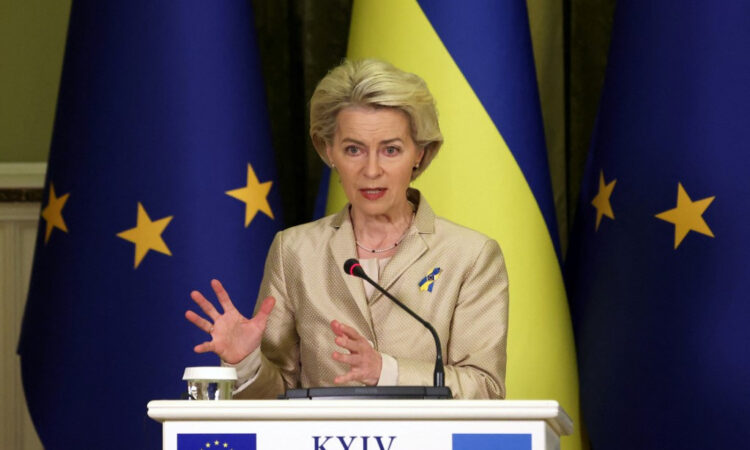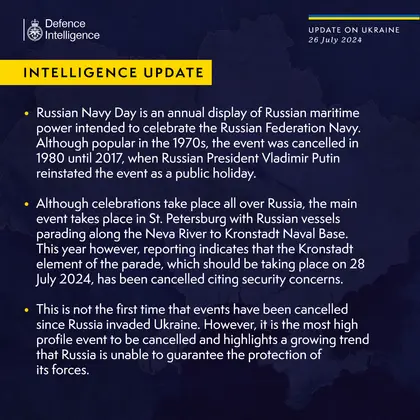
The EU on Friday said €1.5 billion ($1.6 billion) had been made available to support Ukraine, the first chunk of money earned from profits on Russian frozen assets.
EU member states had agreed in May to use billions of euros in profits from frozen Russian central bank assets to help arm Ukraine and fund its post-war reconstruction.
JOIN US ON TELEGRAM
Follow our coverage of the war on the @Kyivpost_official.
The EU froze around €200 billion of Russian central bank assets held in the bloc as part of sanctions imposed on Moscow for its invasion of Ukraine in 2022.
About 90 percent of the funds frozen in the EU are held by Belgium-based international deposit organization Euroclear.
“The EU stands with Ukraine. Today we transfer €1.5 billion in proceeds from immobilized Russian assets to the defense and reconstruction of Ukraine,” EU chief Ursula von der Leyen said in a statement.
“There is no better symbol or use for the Kremlin’s money than to make Ukraine and all of Europe a safer place to live,” she added.
The money comes from interest generated from the frozen Russian funds, not the funds themselves, which remain locked away from Moscow.
Brussels said 90 percent of the money would go to a central fund used to pay for arms for Ukraine, known as the European Peace Facility.
The other 10 percent would go to the EU’s separate Ukraine Facility to support the country’s reconstruction needs.

Other Topics of Interest
British Defence Intelligence Update Ukraine 26 July 2024
Latest from the British Defence Intelligence.
Ukrainian Prime Minister Denys Shymhal thanked the EU for its support.
“Thank you von der Leyen and the EU for your steadfast support and this significant contribution to Ukraine’s defense and reconstruction,” he said on social media.
“We are grateful to the EU for taking this vital step. This transfer will help us strengthen our defense capabilities,” the Ukrainian defense ministry said.
Russia however condemned the “illegal” move.
“This is reason, of course, for thoughtful actions in response to such illegal decisions, which are implemented by the European Union,” Dmitry Peskov, Russian President Vladimir Putin’s spokesman told journalists.






